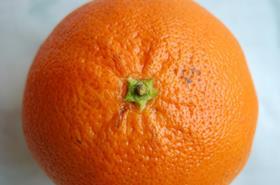
The European Union has imposed what amounts to a provisional ban on imports of citrus from South Africa, a move aimed at eliminating any potential risk of the fungal disease citrus black spot being carried into Europe by the fruit and establishing itself on the continent.
'The introduction of citrus black spot into the EU territory would pose a serious threat to the EU's citrus-producing areas. For that reason, it is necessary to further restrict the import of citrus fruit from South Africa,' the Commission said in a statement.
While the ban affects all citrus brought in from South Africa, initially it applies only to the 2012/13 crop; and with this season's South African citrus campaign in Europe now at an end, the temporary ban is, for the time being at least, purely symbolic.
The Commission is awaiting new information on the purported risk and, in the meantime, warned that restrictions could be extended into 2014 if an ongoing study by the European Food Safety Authority decides that the disease – which is harmless to humans – does have the potentialto establish itself in Europe's estimated 500,000ha of citrus groves.
The likelihood of this occurring has been strongly contested by the South African export trade – backed by a group of leading scientists who last month suggested the disease posed no threat to the EU's own production– but citrus growers in southern Europe have also lobbied hard for a ban to be imposed, citing an earlier EFSA report that suggested trade in citrus was 'moderately likely' to spread the disease.
It is understood that 36 consignments of South African citrus were intercepted by European inspectors and found to be contaminated with black spot during the season just completed.
Any extension of the ban into the new year would pose a major threat to South Africa's citrus export business in Europe, which accounts for around 600,000 tonnes of its overall citrus business worldwide and is worth around €1bn.
In 2012, South Africa's citrus export trade made up 61 per cent of the country's total combined fresh fruit exports by volume, with oranges, lemons, limes and tangerines the main products shipped to Europe.



